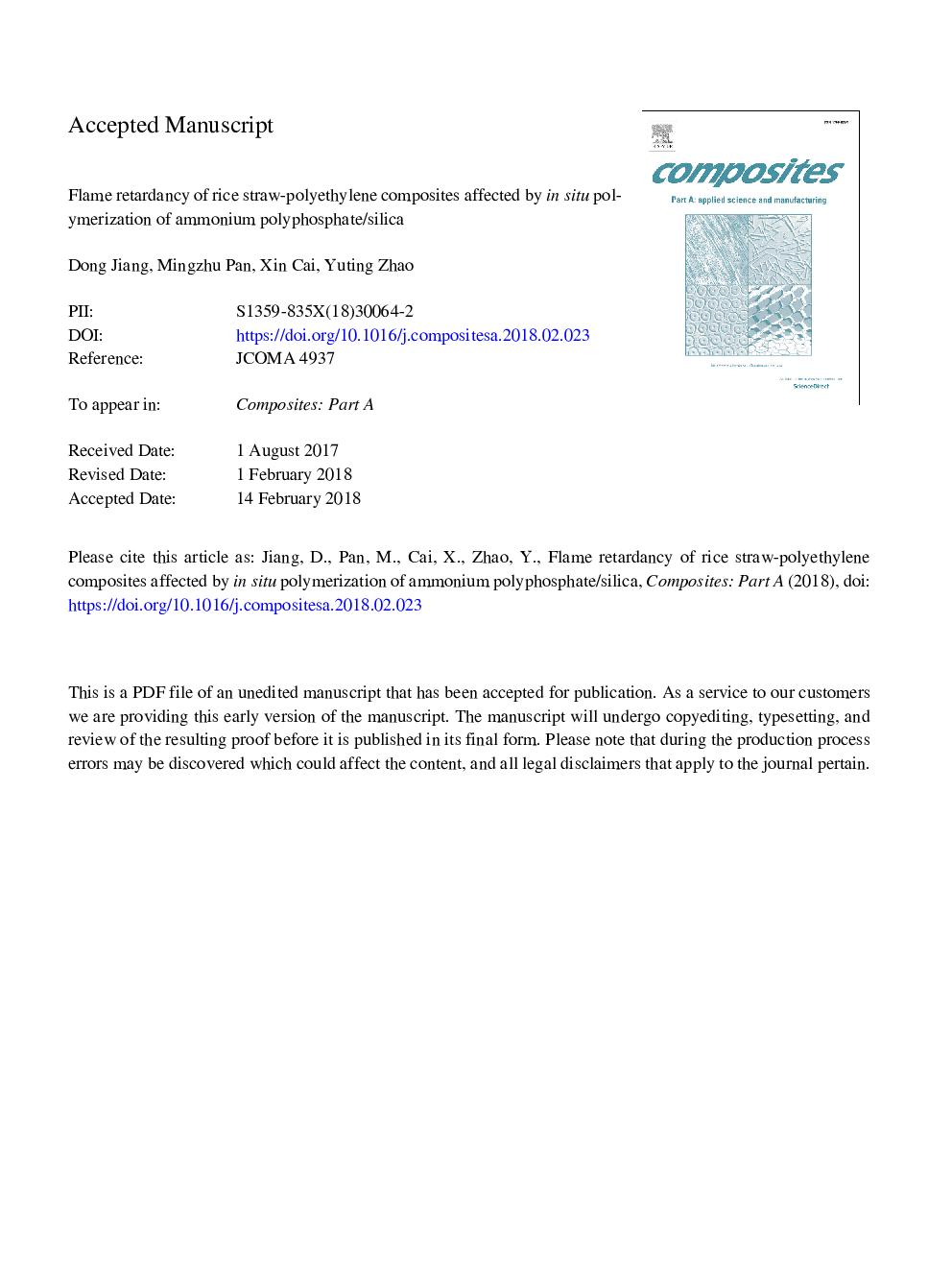| Article ID | Journal | Published Year | Pages | File Type |
|---|---|---|---|---|
| 7889498 | Composites Part A: Applied Science and Manufacturing | 2018 | 34 Pages |
Abstract
Rice straw was modified by in situ polymerization of ammonium polyphosphate (APP) polyelectrolyte. FTIR and SEM results indicated that APP polyelectrolyte was grafted into rice straw surface and attracted silica granules. APP polyelectrolyte showed a uniform distribution on surface of rice straw. Composites containing high-density polyethylene (HDPE) and the modified rice straw with APP polyelectrolyte were prepared. By incorporating APP polyelectrolyte of 15â¯wt%, limited oxygen index (LOI) of rice straw-HDPE composites (RPCs) reached to 23.5%. Introducing neat rice straw to HDPE resulted in a reduction in peak heat release rate (pHRR) of 563.7â¯kW/m2 for RPCs compared with 1223.8â¯kW/m2 for pure HDPE. For RPCs with APP polyelectrolyte of 15â¯wt%, pHRR reached to 488.4â¯kW/m2. An intumescent, stable, and compact char layer, consisting of PC, PNC, CC, SiOP, and SiP, resulted in an improvement on flame retardancy of RPCs.
Keywords
Related Topics
Physical Sciences and Engineering
Materials Science
Ceramics and Composites
Authors
Dong Jiang, Mingzhu Pan, Xin Cai, Yuting Zhao,
